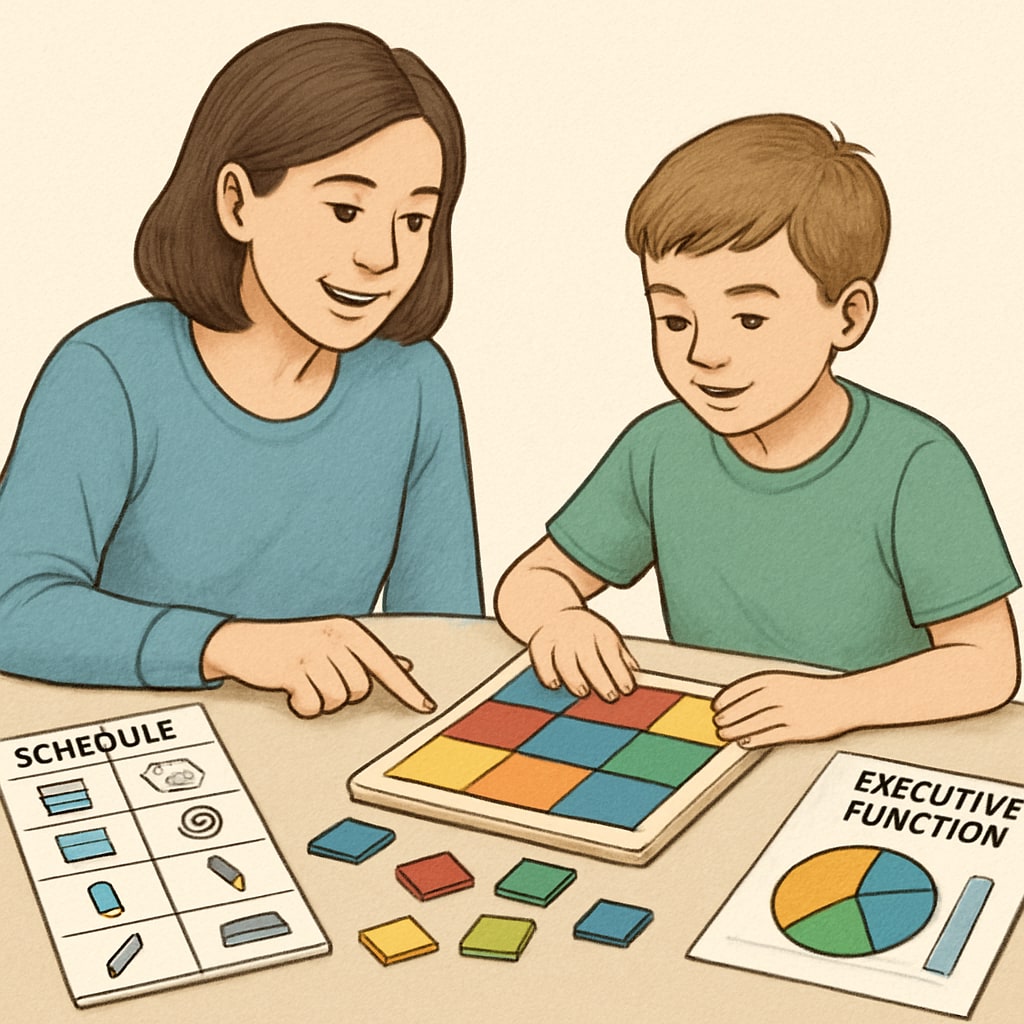Supporting children with special needs, including those with ADHD and autism, requires a focus on executive function, ADHD management, and parental guidance. These children often face unique challenges in emotional regulation, problem-solving, and attention control. By fostering executive function skills, parents can equip their children with tools to navigate daily life more effectively, laying the foundation for long-term growth and independence.
Understanding Executive Function in Special Needs Children
Executive function refers to a set of cognitive processes that enable goal setting, planning, organization, and self-control. For children with ADHD, autism, or other developmental challenges, these skills are often underdeveloped, leading to difficulties in managing tasks and emotions. According to research, children with impaired executive function may struggle with transitioning between activities, following multi-step instructions, or maintaining focus in the classroom.
For example, children with ADHD may find it particularly hard to inhibit impulsive behaviors, while those on the autism spectrum may face challenges with flexibility and adapting to change. As a result, targeted interventions are essential to strengthen these skills and address the specific needs of each child.

Practical Strategies for Executive Function Development
Parents play a pivotal role in supporting their child’s executive function development. Here are some practical strategies that can be implemented at home:
- Create a Structured Environment: Use visual schedules, color-coded charts, and consistent routines to provide clarity and predictability.
- Break Down Tasks: Divide larger tasks into smaller, manageable steps. This approach helps children focus on one step at a time.
- Encourage Self-Monitoring: Teach children to use checklists or timers to track their progress and manage their time independently.
- Model Problem-Solving: Demonstrate how to approach challenges step-by-step, encouraging children to think critically and consider alternative solutions.
These strategies not only build executive function skills but also empower children to approach problems with confidence, reducing frustration and fostering resilience.
Parental Support: Building Emotional Connections
While teaching executive function skills is important, emotional support is equally vital. Parents need to provide a nurturing environment where children feel safe to express themselves and learn from mistakes. Here are some key approaches:
- Practice Active Listening: Pay attention to what your child is saying, validate their emotions, and encourage open communication.
- Promote Emotional Regulation: Teach calming techniques like deep breathing or mindfulness to help children manage stress and frustration.
- Celebrate Small Wins: Acknowledge and reward progress, no matter how minor, to boost motivation and self-esteem.
Research shows that when parents actively engage in these practices, children are more likely to develop a strong sense of self-worth and trust in their abilities. For further reading, explore this comprehensive overview of child development.

Seeking Professional Guidance
In some cases, it may be beneficial to seek additional support from educators, therapists, or specialists. Occupational therapists, for instance, can design tailored interventions to improve executive function and social skills. Additionally, many schools offer Individualized Education Programs (IEPs) to address the specific needs of children with disabilities.
Another valuable resource is online communities and forums where parents can share experiences and strategies. Websites like Autism Speaks provide tools and information to assist families in navigating their child’s journey.
By combining professional support with at-home strategies, parents can create a comprehensive framework that promotes both academic and personal growth.
Conclusion: A Collaborative Approach
Fostering executive function in children with special needs, including those with ADHD, requires patience, consistency, and collaboration. With the right tools and a supportive environment, parents can play a transformative role in their child’s development. By implementing structured routines, teaching emotional regulation, and seeking professional guidance when necessary, families can help their children build skills that lead to lifelong success.
Remember, every small step forward is a victory worth celebrating. With dedication and love, parents can truly build bridges toward a brighter future for their children.
Readability guidance: Use short paragraphs and lists to highlight key points. Maintain a balance of practical advice and emotional support to ensure the content’s relatability and accessibility.


